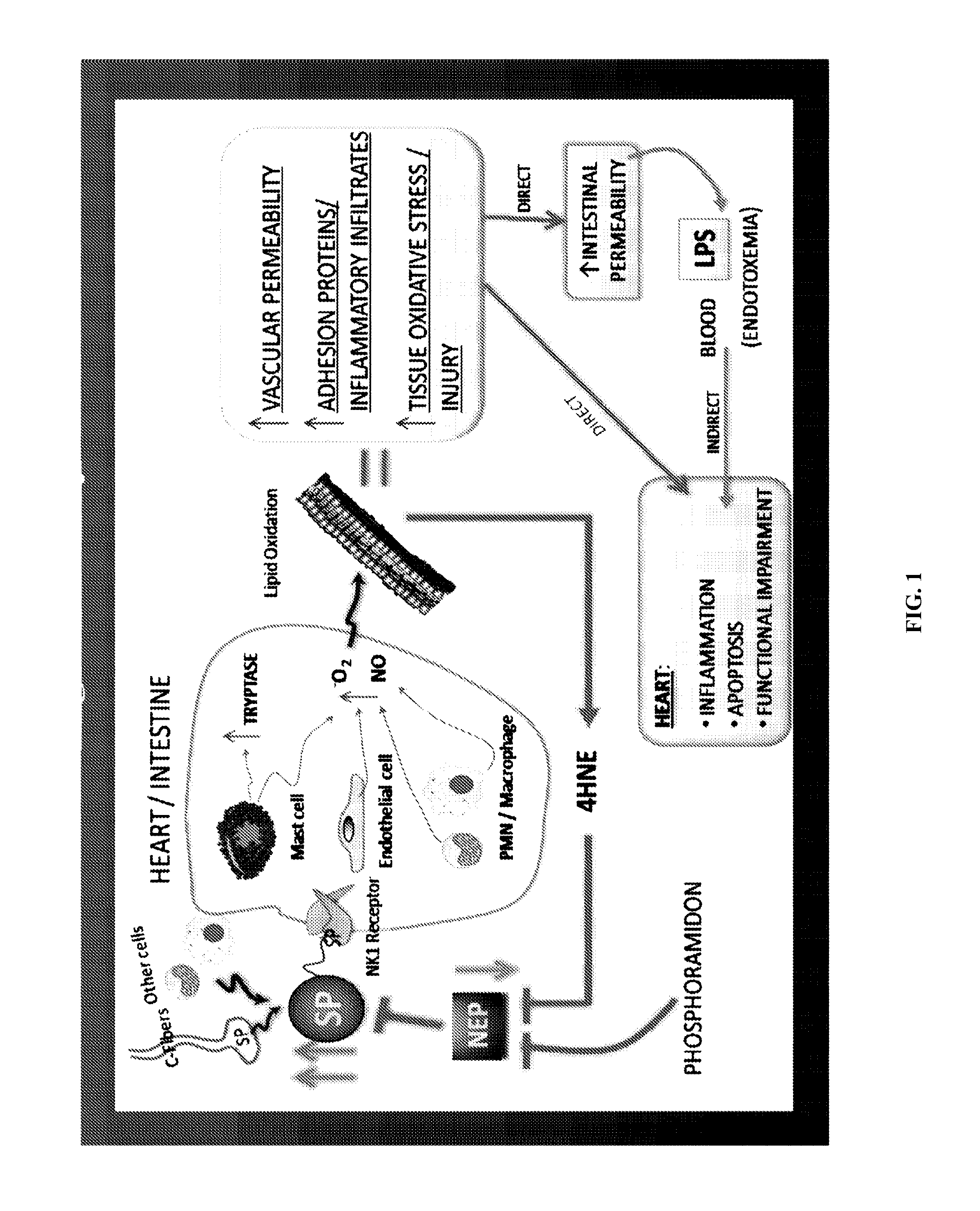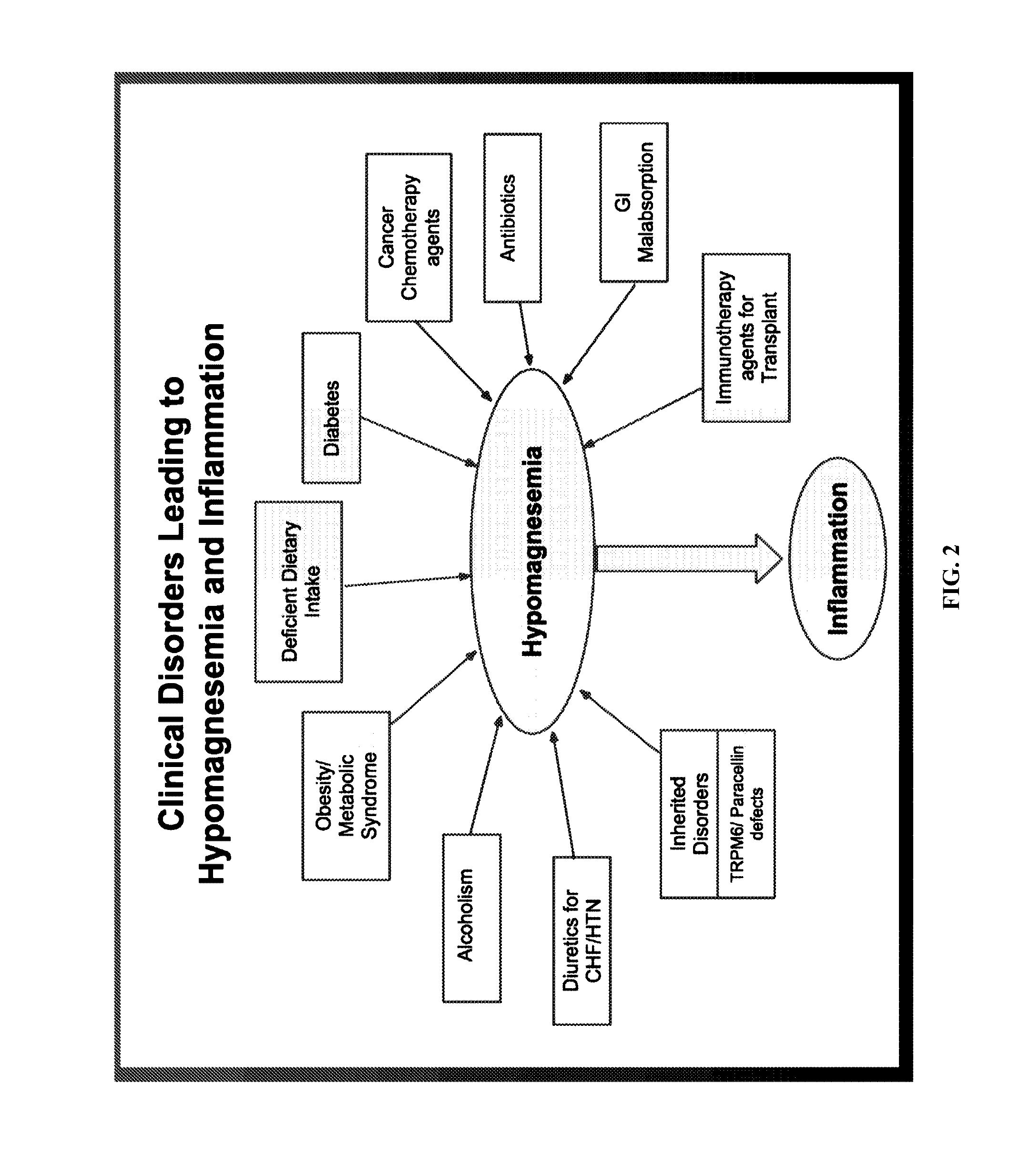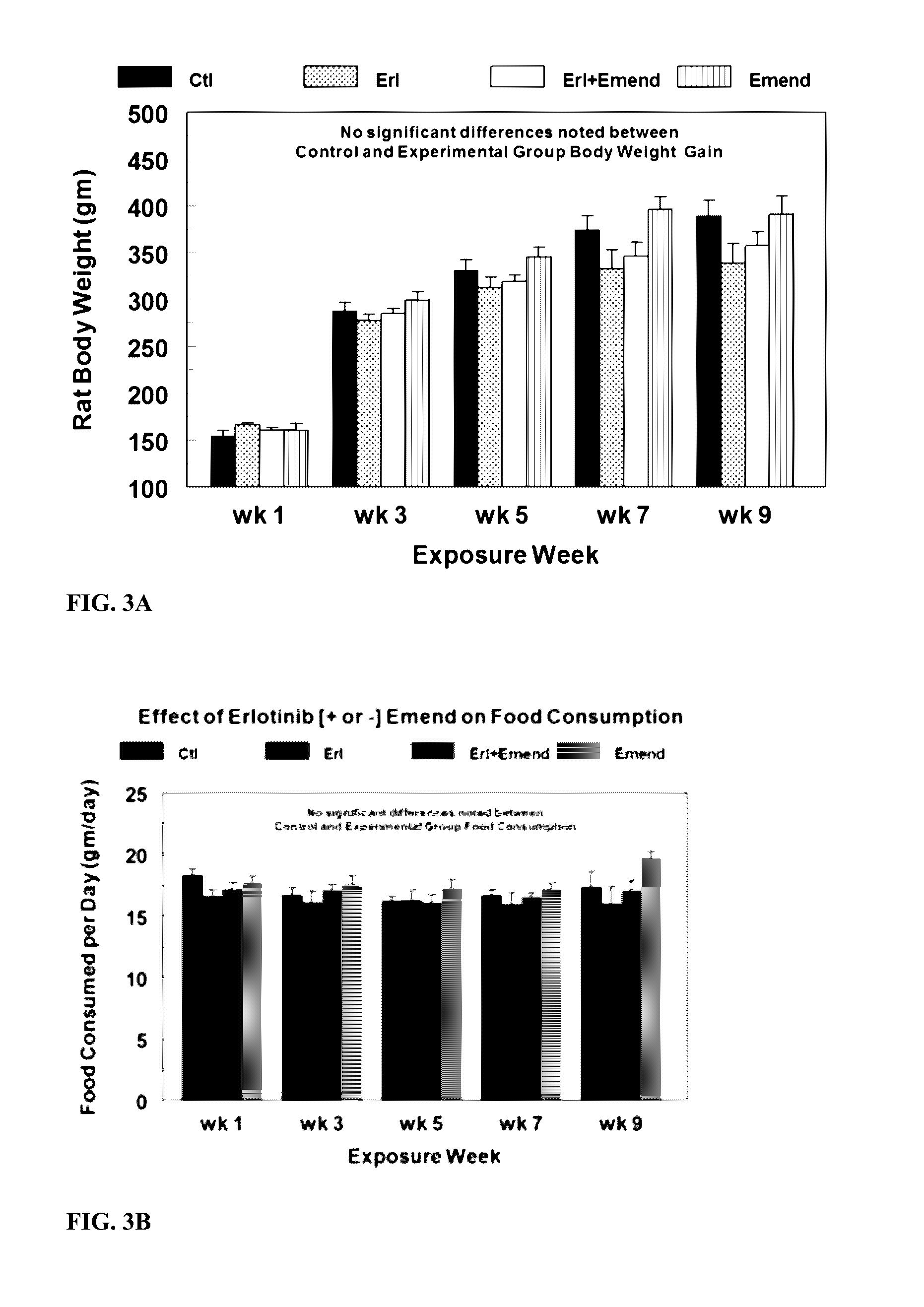Use of NK-1 receptor antagonists for treating hypomagnesemia, neurogenic inflammation, and cardiac dysfunction associated with EGFR-blocking drugs
a technology of nk1 receptor and egfr, which is applied in the direction of pharmaceutical active ingredients, medical preparations, organic active ingredients, etc., can solve the problems of limiting the patient population that can be effectively treated by egfr antagonistic compounds, reducing patient compliance with the therapeutic, and significant drawbacks associated with the utilization of egfr receptor antagonists. , to achieve the effect of reducing, alleviating, or otherwise preventing many of the negative physiological effects
- Summary
- Abstract
- Description
- Claims
- Application Information
AI Technical Summary
Benefits of technology
Problems solved by technology
Method used
Image
Examples
example 1
Animal Model and Treatment Protocol
[0123]Experiments on animals were conducted in accordance with the principles given in the US Department of Health and Human Services Guide for the Care and Use of Laboratory Animals and were approved by The George Washington University Institutional Animal Care and Use Committee. Male Sprague-Dawley rats (125-150 g) were purchased from Hilltop Lab Animals, Inc. (Scottdale, Pa.). After 1 week of quarantine, all age-matched rats were placed on an ad libitum Mg normal diet (25 mmole magnesium oxide / kg food regarded as 100% recommended daily allowance for rodents) obtained from Harlan-Teklad (Madison, Wis.) containing extracted casein as the diet base supplemented with essential vitamins and nutrients; or the same diet supplemented with erlotinib (OSI Pharmaceuticals, LLC, Northbrook, Ill. 60062, USA) to obtain a starting dose of 10 mg / kg / day, Emend® (as aprepitant, Merck & Co., INC. USA) to obtain a starting dose of 2 mg / kg / day, or both agents at the...
example 2
Erlotinib Treatment does not Affect Food Consumption and Weight Gain
[0140]Erlotinib (starting 10 mg / kg / day, oral) and / or Emend (aprepitant, starting 2 mg / kg / day, oral) were administered to rats in custom-prepared food. Neither ERL nor Emend affected food consumption of the animals compared to controls (FIG. 1B). Erlotinib alone modestly, but non-significantly depressed animal weight gain (−13%, N.S.) over 9 weeks of drug treatment, suggesting that the dose of erlotinib used had only minor systemic toxicity (FIG. 1A). Emend plus erlotinib slightly improved weight gain (−8%); however, no statistically significant differences were found among any of the treatment groups compared to their time-matched controls or between each other. There were no significant differences in food intake noted among experimental groups and control animals (FIG. 1B). Data are means±SEM of 5-7 rats per group.
example 3
Erlotinib Promotes Hypomagnesemia and Neurogenic Inflammation
[0141]Blood was sampled at specified times from rats treated with erlotinib (starting 10 mg / kg / day, oral) and / or Emend (aprepitant, starting 2 mg / kg / day, oral). Plasma was assessed for magnesium by flame emission atomic absorption spectroscopy (FIG. 2A). Data are the means±SEM of 5-7 animals per group. * p<0.05,** p<0.01 and # p<0.001 compared with the time-matched control group; + p<0.055 versus erlotinib alone. Plasma SP (FIG. 2B) was assessed by a colorimetric ELISA kit. Values for erlotinib±Emend rats were compared to time-matched controls (100%), and are means±SEM of 4-6 rats per group. * p<0.05 and ** p<0.01 compared with the time-matched control group; + p<0.05 versus erlotinib alone.
[0142]Erlotinib caused no significant hypomagnesemia in rats at 1.5 week (−2%); however from weeks 3 to 9, erlotinib induced moderate but progressively significant decreases in circulating Mg levels as follows: −9% at wk 3, −13% at wk 5...
PUM
| Property | Measurement | Unit |
|---|---|---|
| pH | aaaaa | aaaaa |
| thick | aaaaa | aaaaa |
| image depth | aaaaa | aaaaa |
Abstract
Description
Claims
Application Information
 Login to View More
Login to View More - R&D
- Intellectual Property
- Life Sciences
- Materials
- Tech Scout
- Unparalleled Data Quality
- Higher Quality Content
- 60% Fewer Hallucinations
Browse by: Latest US Patents, China's latest patents, Technical Efficacy Thesaurus, Application Domain, Technology Topic, Popular Technical Reports.
© 2025 PatSnap. All rights reserved.Legal|Privacy policy|Modern Slavery Act Transparency Statement|Sitemap|About US| Contact US: help@patsnap.com



